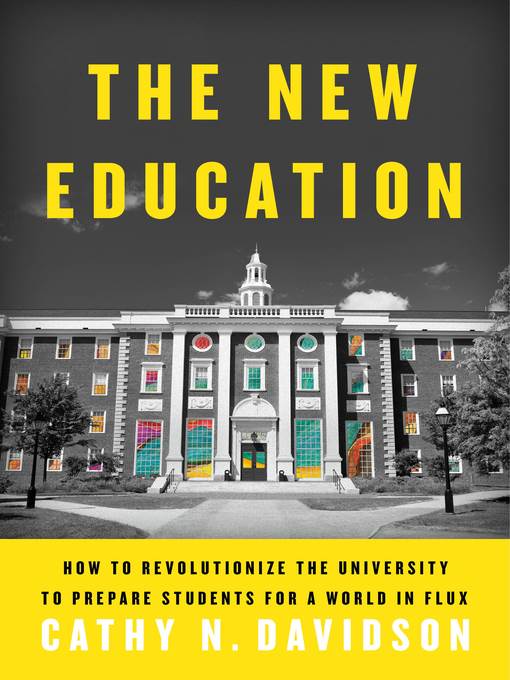
The New Education
How to Revolutionize the University to Prepare Students for a World In Flux
- اطلاعات
- نقد و بررسی
- دیدگاه کاربران
نقد و بررسی

June 15, 2017
An argument for why higher education requires radical change to prepare students for an unpredictable future.Distinguished educator Davidson (Now You See It: How the Brain Science of Attention Will Transform the Way We Live, Work, and Learn, 2011, etc.), who directs the Futures Initiative at the City University of New York Graduate Center, believes that colleges are mired in 19th-century pedagogy. In an engaging, anecdotal, wide-ranging look at educational innovation, she argues that students "need new ways of integrating knowledge, including through reflection on why and what they are learning." They must become active learners, not merely passive absorbers of lectures and rote memorizers. Davidson advocates dramatic pedagogical revisions, much like those instituted by Harvard's president Charles Eliot in the 1880s, when he proposed a university that would prepare students for careers in an industrial age. Today's students, writes the author, need skills to ready them for "intellectual space travel." Davidson praises the nimbleness and flexibility of community colleges, which pioneer learning methods and institute support services (Metro cards, attentive advisers) for nontraditional students. She criticizes both technophobes who bemoan the internet and technophiles who believe computers will transform teaching. Students need digital skills and web literacy, she reasonably contends, but in the context of awareness about how technology connects to "every aspect of our political, personal, and economic lives." Davidson cites Arizona State University as exemplary in curricular reform, where studies are connected "to community, to the cultural, physical, and socioeconomic conditions of Phoenix, Arizona, and the Southwest more generally." Among the many educators whose ideas the author highlights is Christine Ortiz, an MIT professor and graduate school dean engaged in creating a nonprofit residential research university featuring project-based learning. Davidson sees current emphasis on STEM fields to be too focused on testing rather than real-life applications. "Youth," she writes, "are still being graded into passivity and a state of fear by standardized classes." Advice for students and teachers rounds out a persuasive plea for creative learning.
COPYRIGHT(2017) Kirkus Reviews, ALL RIGHTS RESERVED.

October 15, 2017
These two books by education experts present the actual strengths and weaknesses of higher education today and provide complementary recommendations for needed improvements. Bok (president emeritus, Harvard Univ.; Higher Education in America) emphasizes increasing the number of college graduates and improving the quality of their programs, focusing on the institutional environment and how state and federal government, foundations, accreditors, and the institutions themselves contribute. He stresses the need for increased financial and academic support for students and investment in faculty to strengthen teaching and the curriculum.
Davidson, a longtime faculty member at Duke University and now director of the Futures Initiative at the Graduate Center at the City University of New York, asserts the value of developing innovative, student-centered teaching. She analyzes the potential and limitations of technology and argues convincingly that the cost of tuition at public colleges has risen mainly because of declining appropriations from state governments. Both authors assert that although preparation for careers has to be part of higher education goals, the foundation for satisfying careers and lives is a broad-based, interdisciplinary program for all students beyond any specific technical skills. They call for American society and governments to invest in higher education for today's students as they did with the GI Bill after World War II. These books clearly analyze the current challenges to student success, countering much of the glib criticism and articulating essential characteristics of educational achievement, with Bok focusing on the roles of universities and government officials, and Davidson describing the innovative teaching and learning skills required for the 21st century. VERDICT Highly recommended for educators, legislators, parents, and students.--Elizabeth Hayford, formerly with Associated Coll. of the Midwest, Evanston, IL
Copyright 2017 Library Journal, LLC Used with permission.




دیدگاه کاربران